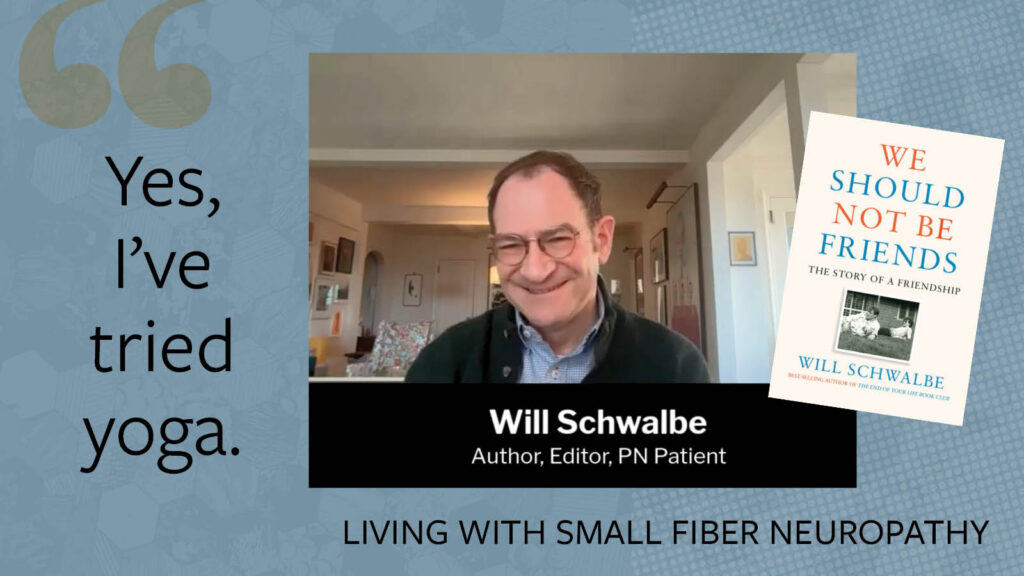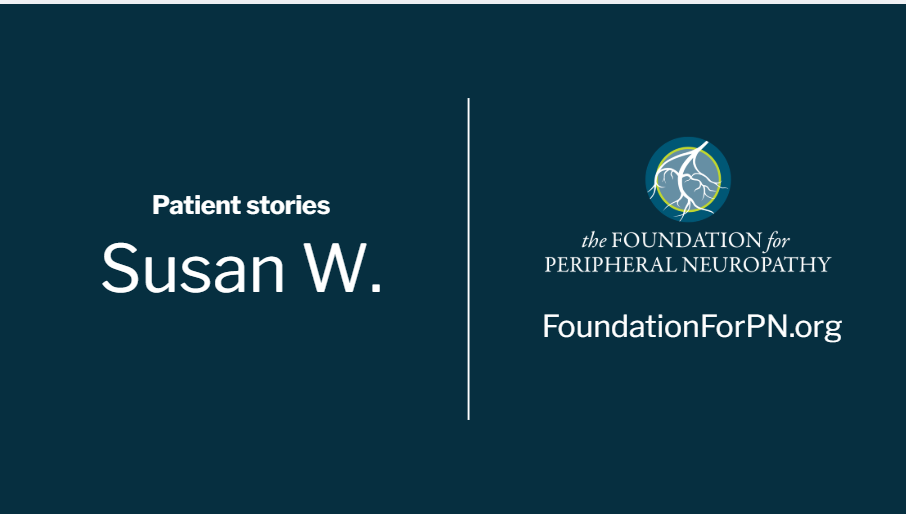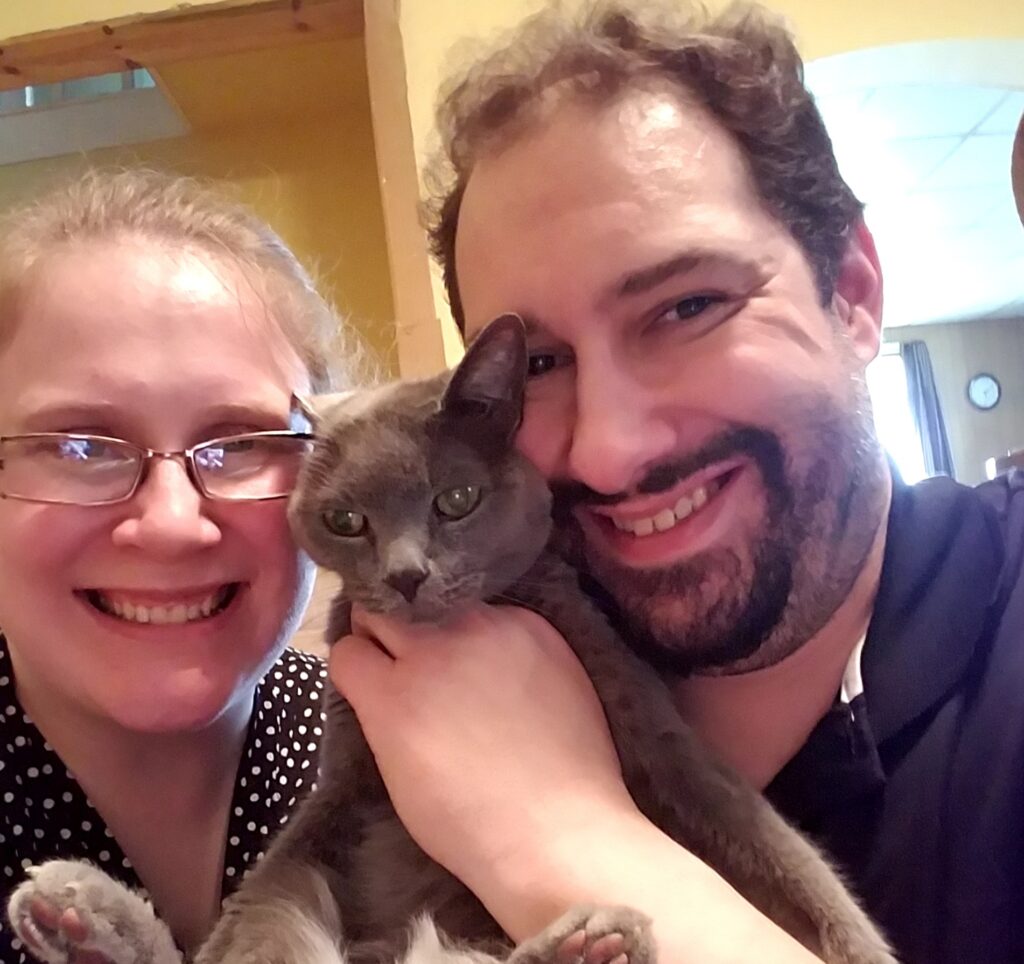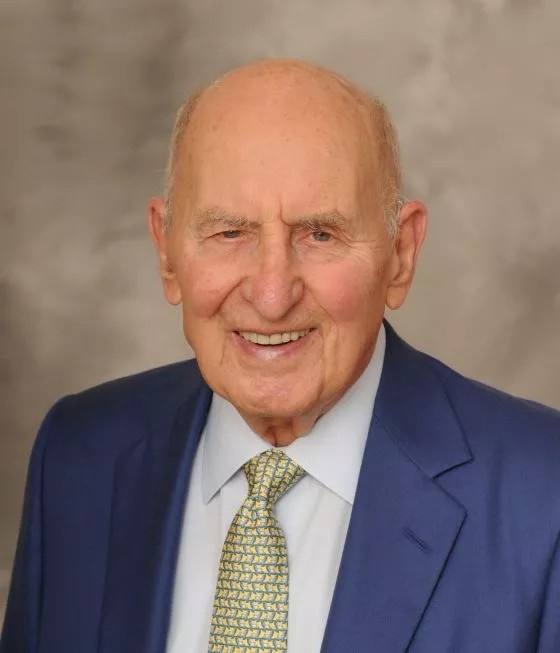Persistence
Sotirios from New Jersey shares his inspirational journey of SFN: from diagnosis to symptom management, showcasing persistence in the face of adversity.
“Am I having a heart attack?” That is what I found asking myself in February 2021, while walking. Suddenly, and without warning, I – a relatively healthy and active 43-year-old without any known cardiac issues – experienced such a sharp, intense pain in my chest that it prompted me to go to the local emergency room. Despite a normal ECG and bloodwork, the pain persisted. The attending physician suggested an anxiety attack and suggested anti-anxiety medication and therapy.
“But I am not anxious!” I told him. I recently married a woman I adore and started a new job that excited me. Unfortunately, my claim became a familiar refrain that year as severe chest pain and a slew of other unexplained symptoms tormented me daily, which included extreme heart rate and blood pressure variations, vertigo, skin flushing, digestive problems, and cold feet, among others. These sensations sent me to the ER multiple times. Doctors would tell me it was likely anxiety every time despite resting heart rates of 200 beats per minute and a face that looked like I spent the day staring at the sun. My wife, Laura, a witness to my pain, defended and advocated for me. We both felt defeated each time.
Nearly every specialist I saw (and I saw many!) said they could find no underlying reason for my symptoms. It wasn’t until I saw an otolaryngologist (an ENT) late that year for a strange feeling in my throat that I finally had a viable lead. “What you are experiencing is called a ‘globus sensation,’ or a feeling that there’s something stuck in your throat,” he said. “Unfortunately, I don’t see anything causing that feeling. You’ve seen a gastroenterologist, and nothing was found, yes?” “Yes, I replied. Nothing.” “Well,” he calmly said, ” it could be due to autonomic dysfunction.”
“Autonomic dysfunction?” This phrase was the first time in nearly 10 months that someone said something that didn’t mention a variation of the word ‘anxiety.’ I had seen a neurologist already who had seemingly ruled out an underlying neurological cause. I contacted them again and mentioned what my ENT told me. “Regrettably, autonomic disorders are not my specialty. You’ll likely need to see a neurologist in New York City specializing in them.”
My PN Journey Begins: Persistence in Confronting Small Fiber Neuropathy
Thus, in January 2022, almost a year after experiencing symptoms, a skin biopsy confirmed that I had small fiber neuropathy (SFN). SFN is a condition that affects the small fibers of the peripheral nervous system, which transmit sensory information and regulate automatic functions. A classic presentation of SFN is often pain sensory changes in the feet that travel up the body to the hands, known as stocking-glove distribution. It can also cause autonomic dysfunction, as in my case. Nearly half of all SFN cases occur in patients with diabetes.
In contrast, the other half are idiopathic, meaning a cause is not fully understood. As for my case, my neurologist confirmed that my SFN is linked to an elevated TS-HDS autoantibody, establishing an underlying autoimmune root cause. While knowing that is helpful, it is of little solace. There is no known cure for SFN, and physicians often use drugs like anticonvulsants and selective serotonin reuptake inhibitors (SSRIs), among others, off-label to treat patients’ symptoms and try to enhance their quality of life. While sometimes helpful, they are often not entirely adequate to mitigate symptoms. They may also have unwanted side effects.
Some physicians have successfully prescribed intravenous immunoglobulin (IVIg) therapy to patients with anecdotally positive results; however, it is notoriously difficult to obtain insurance approval as it is very costly and is not an approved treatment for SFN. Two different insurance companies denied my claim for IVIg therapy. Additionally, there are ongoing research studies that certain SFN patients can partake in that test new treatments. The National Library of Medicine keeps a database (www.clinicaltrials.gov) of former and upcoming clinical trials in the United States and other countries.
Why I Fight
As of this writing, some of my symptoms have lessened in their severity. Some have not. I still struggle with chest pain, and my feet and hands often feel like they are in a bucket of ice, especially at night. I continue working with my neurologist and other specialists to manage my symptoms. In addition to prescription medicine, I try to manage my SFN through exercise, nutrition management, supplements, and mental health well-being. Since my diagnosis, my wife and I welcomed the birth of our son. He brings me joy that helps to take my mind off the daily pain and discomfort.
Sharing my story isn’t easy. Still, I feel inclined to share it so people like me do not give up. It took me a year of numerous doctor visits, tests, and useless medications before I finally had a viable lead. I often felt hopeless, but my family was my source of perseverance. I want to be the best version of myself for them, and they are why I fight for a cure.







